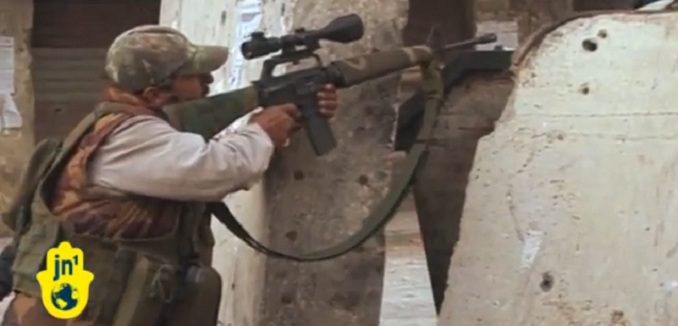Last summer the Lebanese army, backed by Hezbollah, stormed a Sunni mosque where a radical cleric and his followers had holed up. The cleric was seeking to exploit sectarian tensions generated by Hezbollah’s involvement in the Syrian conflict, and the Iran-backed terror group – was widely blamed the unrest that surrounded the incident.
Months later Hezbollah was forced to militarize its urban strongholds – establishing checkpoints and boosting on-the-street frisking procedures – after jihadists detonated car bombs in Hezbollah-dominated neighborhoods. Many of the checkpoints were eventually turned over to Lebanese security forces, again amid criticism of Hezbollah for generating the blowback in the first place.
The dynamic is becoming something of a trend.
Now Hezbollah is calling on the Lebanese army to seize control of Tripoli. A week of fighting – including both sniper attacks and mortar fire – has left scores dead. Hezbollah chief Hassan Nasrallah was slammed today by Lebanese opponents for sending weapons to the Shiites fighting in the area.
And Nasrallah is now calling for help:
Lebanon’s population is deeply divided over the Syrian war, with Shi’ite Islamist guerrilla and political movement Hezbollah and its allies supporting Assad and the country’s Sunni-led opposition bloc, March 14, backing the revolt. Hezbollah leader Sayyed Hassan Nasrallah called on Monday for the army to take full control of Tripoli, as government officials discussed a security plan for the restive city.
“This is the only solution: to summon the Lebanese army and the security forces and to cooperate with them,” Nasrallah said in a televised speech in which he suggested that the alternative was allowing al Qaeda-linked Syrian rebel militia to operate in the city. Nasrallah has blamed such factions for attacks on his Iranian-backed group’s Beirut base and other Shi’ite areas in Lebanon.
[Photo: JewishNewsOne / YouTube]




